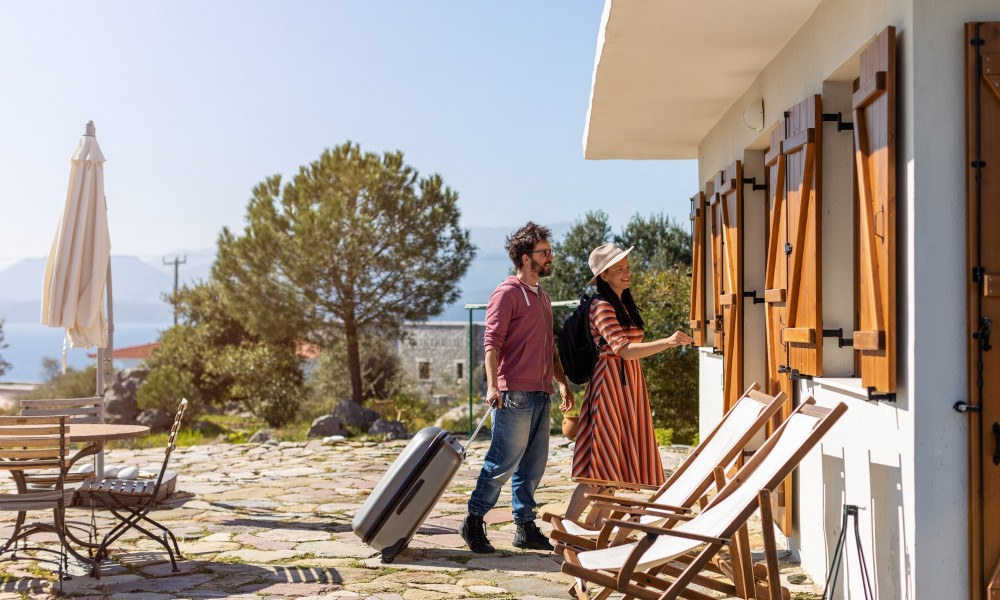Foreign citizens with property in Italy

What happens to real estate after death
Italy continues to be one of the most favored destinations for real estate purchases by foreign citizens. Its historical heritage, mild climate, culture, and quality of life attract buyers from both Europe and beyond. Many choose to invest in second homes, income-generating properties, or permanent residences. But what happens when a foreign property owner in Italy dies? The answer unveils a complex legal and tax scenario: international succession.
- International succession: which law applies?
- Obligations in Italy: declaration of succession
- Foreign documents: validity and formalization in Italy
- Wills drafted abroad: when are they valid in Italy?
- Registration of inheritance acceptance
- Inheritance tax in Italy
- Special cases: co-ownership, trusts, and timeshares
- What happens if the heirs take no action?
International succession: which law applies?
For successions involving cross-border elements, the main legal reference is EU Regulation No. 650/2012, applicable to European Union citizens. This regulation establishes that the applicable inheritance law is that of the country in which the deceased had their habitual residence at the time of death, unless they had chosen the law of their nationality in their will.
Even if a foreign law governs the succession, the formal and public aspects related to properties located in Italy must still comply with Italian law. For non-EU citizens, Italian private international law applies, which—barring any bilateral treaties—recognizes the principle of legal reciprocity.
Obligations in Italy: declaration of succession
Heirs, even if residing abroad, are required to file a declaration of succession in Italy within 12 months of the death. This step is necessary to declare the assets located on Italian territory, calculate the taxes due, and enable the legal transfer of ownership.
The declaration must be submitted to the Italian Revenue Agency and must include accurate information about the inherited properties and the heirs, to initiate the cadastral update and the registration of the inheritance in the public land registries.
Foreign documents: validity and formalization in Italy
Documents issued abroad (death certificates, wills, affidavits, powers of attorney, birth certificates) must be officially translated into Italian and legalized. If the country of origin is a party to the Hague Convention, an apostille is sufficient; otherwise, consular legalization is required.
The absence of valid or correctly translated documents can block the entire inheritance process, as neither notaries nor public offices can proceed with registration or transfer of ownership.
Wills drafted abroad: when are they valid in Italy?
A foreign will can be recognized in Italy if it complies with the law of the country in which it was written. However, to be effective for real estate located in Italy, it must be published by an Italian notary, who certifies its formal validity and enables its use for registration in the property registers.
This step is essential: without notarial publication, the will cannot have legal effect in Italy, even if it is perfectly valid abroad.
Registration of inheritance acceptance
After submitting the declaration of succession and paying the due taxes, the acceptance of the inheritance must be registered at the Land Registry Office (Conservatoria dei Registri Immobiliari). Only through this formality does the heir become the legal owner of the property.
Registration can be done through a notarial deed or by a qualified technician, but the notarial route provides greater legal protection and certainty. Without this act, the heir cannot legally sell, rent, or modify the property.
Inheritance tax in Italy
Inheritance tax is applied only to assets located in Italy and varies depending on the relationship between the deceased and the heir:
- Spouse and children: 4% tax with a €1 million exemption per person
- Siblings: 6% tax with a €100,000 exemption
- Other relatives or third parties: up to 8% with no exemption
Payment of the inheritance tax is mandatory to complete the cadastral and registration process, and the Italian Revenue Agency may carry out audits and assessments on the property’s value.
Special cases: co-ownership, trusts, and timeshares
When a property is inherited by multiple people, a shared ownership (communione ereditaria) is formed: each heir owns an undivided share. If the heirs live in different countries or have differing views, management can become complicated.
In the case of foreign trusts or fiduciary instruments, recognition in Italy is possible but must be carefully analyzed with the support of legal advisors, especially in light of Italian case law on the subject.
Timeshare properties require verification of specific contractual clauses and may involve constraints or limitations on inheritance transfer.
What happens if the heirs take no action?
If the heirs do not file the declaration of succession, the property remains in the name of the deceased. This prevents any legal operations: the property cannot be sold, rented, legally renovated, or fully accessed. In addition, tax penalties and debts to the Italian state may accrue.
To avoid such consequences, it is essential that heirs are informed and supported in meeting deadlines and fulfilling the required obligations.
The entire inheritance process can be complex, especially when it involves different legal systems. For this reason, it is crucial to consult professionals specialized in international succession, who can manage each phase: from the publication of foreign wills to the registration of the inheritance, from tax advice to the preparation of documents.
Agenzia delle Successioni, for instance, offers comprehensive support in managing cross-border inheritance procedures, assisting both heirs and foreign investors who wish to plan ahead for the future of their Italian assets.
Click here instead if you were looking for the AIRE residency certificate.
Customer Service
Customer support is available Monday to Friday, from 9:00 AM to 5:00 PM.
Fill out the Form
Consult the expert professional in the field
Fast response and personalized assistance!





